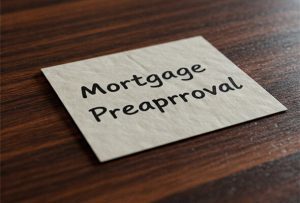When deciding between a long-term or short-term mortgage, various factors based on the borrower’s personal and financial situation must be considered. While a longer mortgage term may be common, paying off debt sooner can be advantageous. Is it feasible to reduce a 30-year home loan to 15 years?
Sire Finance will explore strategies for achieving this goal in this informative article. This valuable information is ideal for clients looking to shorten their mortgage terms and achieve financial freedom sooner.
Can You Pay Off Your 30-Year Mortgage Early?
Yes, it is possible to pay off your mortgage early, potentially leading to savings on interest in the long run. However, it is important to carefully review your mortgage terms as there may be penalties or fees associated with pre-payments.
While a 30-year mortgage is often a popular option for home buyers, circumstances can change, prompting homeowners to explore the benefits of paying off their mortgage sooner.
How to Pay Off a 30-Year Mortgage Faster
Discovering strategies to pay off your mortgage early can be advantageous for building equity in your home. By following tips and advice from Sire Finance, you can learn how to effectively reduce a 30-year mortgage term to just 15 years.
Let’s delve into each financial strategy to understand how this can be achieved.
1. Make an Extra Mortgage Payment Every Year
One great way to enhance your financial situation is by strategically using any windfall you receive, such as a year-end bonus or inheritance, to pay down your mortgage. By making extra payments early in the loan term, you can significantly reduce the interest you will end up paying over the life of the loan.
Since a large portion of the interest is front-loaded in the first few years of a 30-year mortgage, taking advantage of this time period can have a major impact on your overall financial health.
2. Pay Extra Each Month
A great way to accelerate paying off your mortgage is by allocating surplus funds at the end of the month towards an additional principal payment. By attacking the principal with extra monthly payments labelled as “apply to the principal,” you can significantly reduce the amount of interest paid over the life of the loan.
Consider dividing your monthly payment by 12 and making separate principal-only payments for maximum impact. In addition, rounding up each payment can further expedite your mortgage payoff journey.
3. Refinance with a Shorter-Term Mortgage
Mortgage refinancing involves obtaining a new loan to replace an existing mortgage, offering the opportunity to reduce monthly expenses or shorten the repayment period with a revised loan term.
While opting for a shorter term can lead to quicker repayment, it typically necessitates higher monthly payments and potential out-of-pocket closing costs. It is crucial to consider whether you can manage the increased monthly payments of a 15-year loan or if it would be more feasible to make additional contributions towards a 30-year mortgage.
4. Pay Bi-Weekly
Utilizing a biweekly payment strategy for your mortgage can yield significant benefits in terms of accelerating the payoff timeline. By making half-payments every two weeks rather than the traditional monthly payments, one can effectively make an extra full payment each year.
This additional payment can potentially lead to a reduction of up to five years in the total repayment period of a 30-year mortgage. Incorporating a structured payment approach could be a strategic financial move towards achieving faster mortgage debt elimination.
5. Loan Modification
Loan modification is a financial strategy lenders employ to adjust the terms of an existing mortgage, such as reducing interest rates or converting from an adjustable to a fixed-rate mortgage. These programs are designed to assist borrowers facing financial hardships such as unemployment, rising living costs, disability, or other income losses that may impede their ability to meet payment obligations.
6. Recast Your Mortgage
Mortgage Recasting presents a viable option for homeowners looking to alleviate monthly financial burdens without the need to refinance. By making a significant one-time payment towards the principal balance, borrowers can enjoy reduced monthly mortgage payments while maintaining financial flexibility.
This strategy can be particularly advantageous for individuals seeking to optimize their cash flow following a windfall or other significant financial event.
7. Pay Off High-Interest Debt First
Prioritizing the repayment of high-interest debt such as credit card balances or a car loan is recommended before increasing efforts to pay off your mortgage faster. By addressing debt with interest rates exceeding 20%, individuals can potentially save more money in the long run.
Refinancing high-interest debt into a HELOC or home equity line of credit, if feasible due to sufficient equity in your home, allow for immediate payment of such balances and subsequent focus on accelerating mortgage payments.
8. Downsize Your Home
It may be advantageous to consider selling your current home before completely paying off the mortgage if there is substantial equity available. By utilizing the profits from the sale, it may be possible to purchase a smaller and more affordable property.
With the potential of buying a new home outright or obtaining a smaller mortgage, the debt burden can be significantly reduced, ultimately leading to an expedited repayment process.
Should You Pay Off Your 30-Year Mortgage Faster?
It is prudent to carefully consider the interest rate on your mortgage before deciding whether to pay it off faster. With rising mortgage rates, refinancing may not always be a feasible option for those who have secured a low rate.
Factors such as the remaining balance on the mortgage and other financial obligations should also be evaluated when making this important decision.
Advantages and Disadvantages of Paying Off Your 30-Year Mortgage Early
Deciding to pay off your mortgage early can be a smart financial decision, as it can free up extra cash each month and save you money on interest in the long run. However, it’s important to consider all factors before making this choice, as it may be more beneficial to focus on paying off high-interest debt or investing your money instead.
It’s essential to weigh the advantages and disadvantages of paying off your mortgage early to determine what makes the most financial sense for you.
Advantages of Paying Off Your 30-Year Mortgage Early
Below are reasons to consider whether paying off your mortgage early is beneficial for your long-term financial prospects.
1. Significant Interest Savings
By reducing the duration of your mortgage payments, you can decrease the total interest paid throughout the loan term. Considering factors like the loan amount, interest rate, and original term, paying off your mortgage sooner could lead to substantial savings in the long run.
2. Financial Freedom
Upon complete repayment of your mortgage, you will have full ownership of your home, providing security in times of financial uncertainty and eliminating the burden of monthly mortgage payments. Additionally, the equity accumulated in your property is a valuable asset that can be utilized as needed.
When the time comes to sell, the proceeds from the sale will be entirely yours to keep, allowing for financial flexibility and peace of mind.
3. Increased Home Equity
By fully repaying your loan, you will bolster the equity in your home, providing you the opportunity to utilize it through options such as a home equity loan, home equity line of credit (HELOC), or cash-out refinance.
These financial strategies can help you access additional funds for various purposes while leveraging the value of your property.
4. Reduced Financial Stress
Debt is a significant source of stress for many individuals, impacting their mental well-being. However, by actively addressing and managing debt, individuals can not only achieve financial security but also experience a sense of relief and peace of mind.
This is particularly crucial in the current uncertain economic climate, where having a stable financial foundation can provide a sense of stability and security.
5. Improved Credit Score
According to industry professionals, the act of closing a mortgage typically has minimal impact on an individual’s credit score. However, the positive effects of having a fully paid mortgage reflected on one’s credit report for a decade cannot be understated.
By successfully concluding a mortgage agreement and showcasing it as a closed account in good standing, borrowers can significantly enhance their appeal to potential lenders while simultaneously reducing their debt-to-income ratio.
Disadvantages of Paying Off Your 30-Year Mortgage Early
While there are many advantages to paying off your mortgage early, one must weigh any potential disadvantages before making a decision. Among the potential drawbacks are:
1. Missed Interest and/or Tax Benefits
When considering using your savings to repay your mortgage, it is important to compare the interest rates. If the interest you’re earning on your savings is higher than the interest on your mortgage, it may be better to keep your savings untouched.
Additionally, depending on your age and pension situation, it might be more advantageous to put your savings into your pension instead of towards your mortgage. The tax benefits of contributing to your pension could outweigh any potential interest savings from paying off your mortgage early.
2. Reduced Liquidity
When paying off your mortgage early, consider the impact on liquidity. Pouring all your cash into your home may limit access to emergency funds. Keeping some cash in a savings account provides immediate access to money if needed.
Balance the desire to be mortgage-free with the need for liquid assets. Many who pay off their mortgage early prioritize financial freedom over liquidity concerns.
3. Opportunity Cost
Paying off a mortgage ahead of schedule can be a strategic move, but it’s important to weigh the opportunity cost. If you can invest extra money in opportunities that yield higher returns than your mortgage interest rate, you could potentially make more money in the long run.
By carefully considering your financial options, you can find a balance between paying off your mortgage early and investing for future growth.
4. Early Repayment Charges (ERCs)
Early repayment charges (ERCs) are fees that lenders impose if you pay off your loan early. These charges help lenders recover some of the costs they would lose out on if you stop paying interest sooner than expected. The amount of ERCs can vary greatly depending on how early you repay and the size of your loan.
Generally, the closer you are to the end of your mortgage term, the lower the charges will be. However, even at that point, ERCs could still be significant – potentially costing thousands of pounds. It’s crucial to carefully consider these costs against the savings you would gain from repaying early.
5. Less Diversification
When deciding to pay off your mortgage early, it’s important to consider how this may impact your other financial goals, such as investing, retiring early, or paying off additional debts. While owning your home outright can provide a sense of security, it’s crucial to weigh the pros and cons of allocating funds toward mortgage payments versus other potential investments for the future.
Ultimately, finding a balance that aligns with your overall financial objectives is key in making informed decisions about paying off your home early.
The Takeaway
By exploring options such as traditional refinancing or cash-out refinancing with Sire Finance, borrowers can make informed decisions about their mortgages and potentially save money in the long run. While paying off a mortgage early may limit extra funds for other financial goals, Sire Finance is dedicated to providing support and guidance throughout the process.
With competitive rates, flexible terms, and knowledgeable Mortgage Loan Officers, Sire Finance is a reliable resource for those looking to manage their mortgages effectively. Whether you are working towards paying off your mortgage or considering a new one, Sire Finance is committed to helping you achieve your financial goals.









